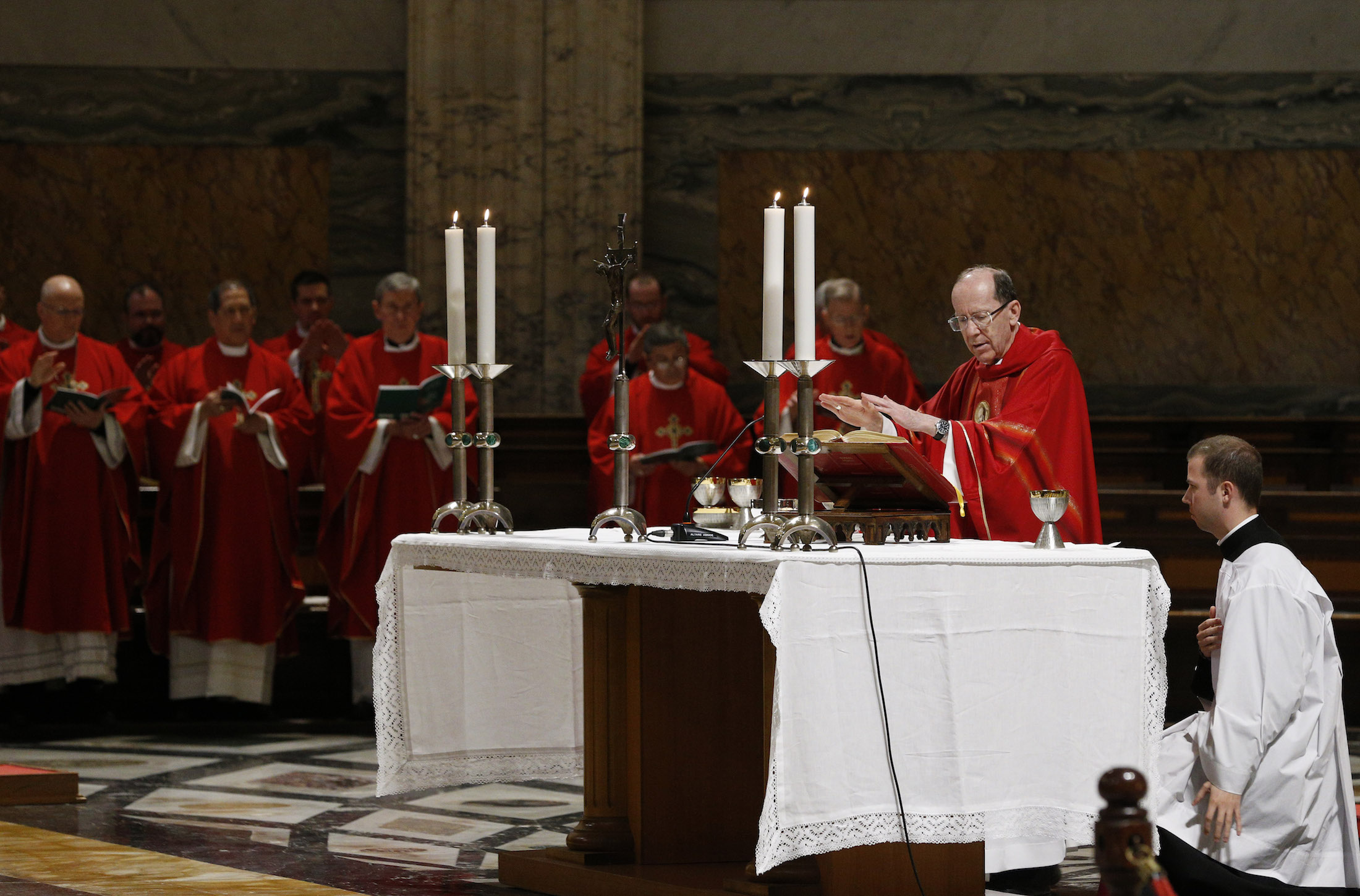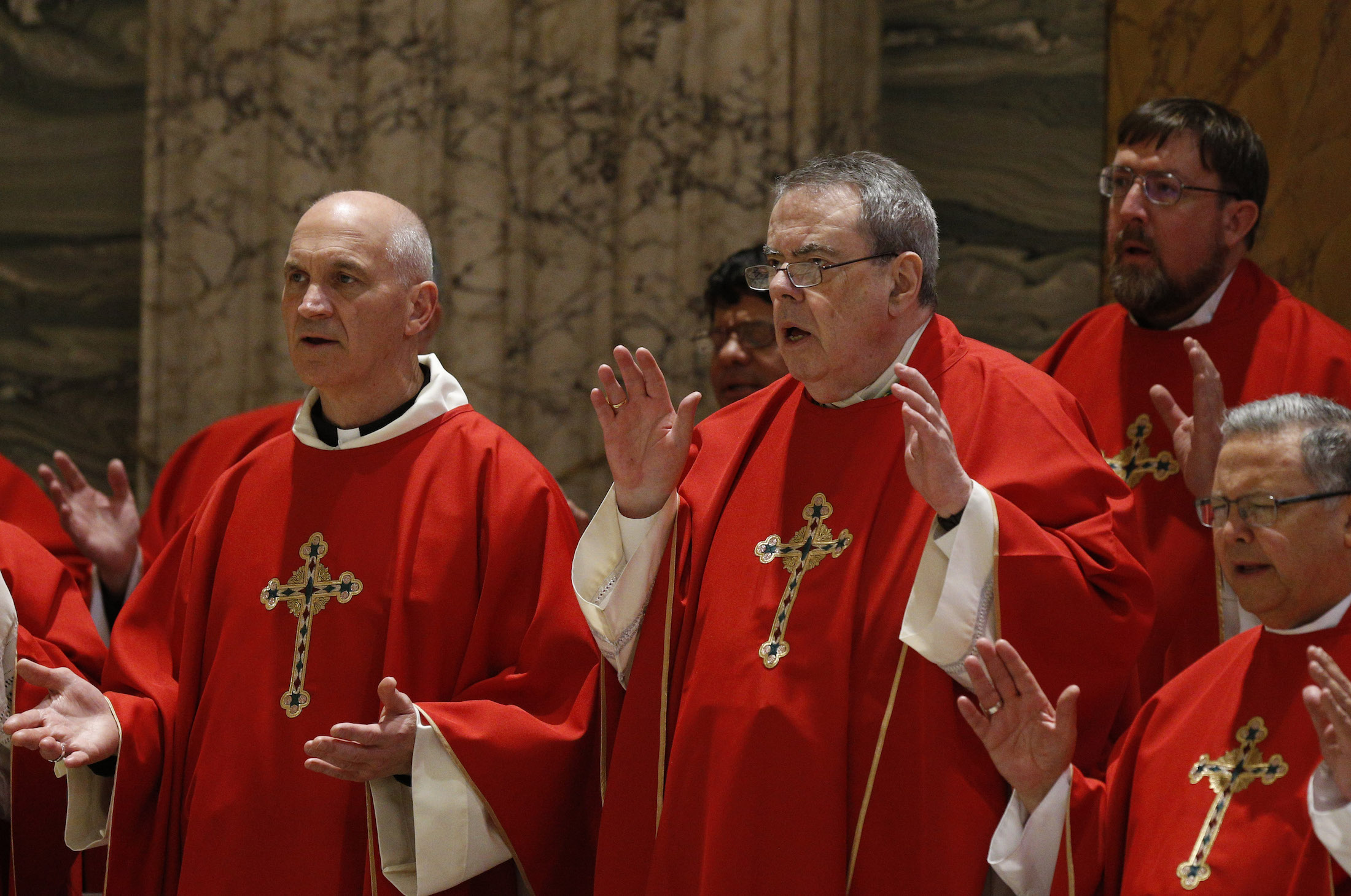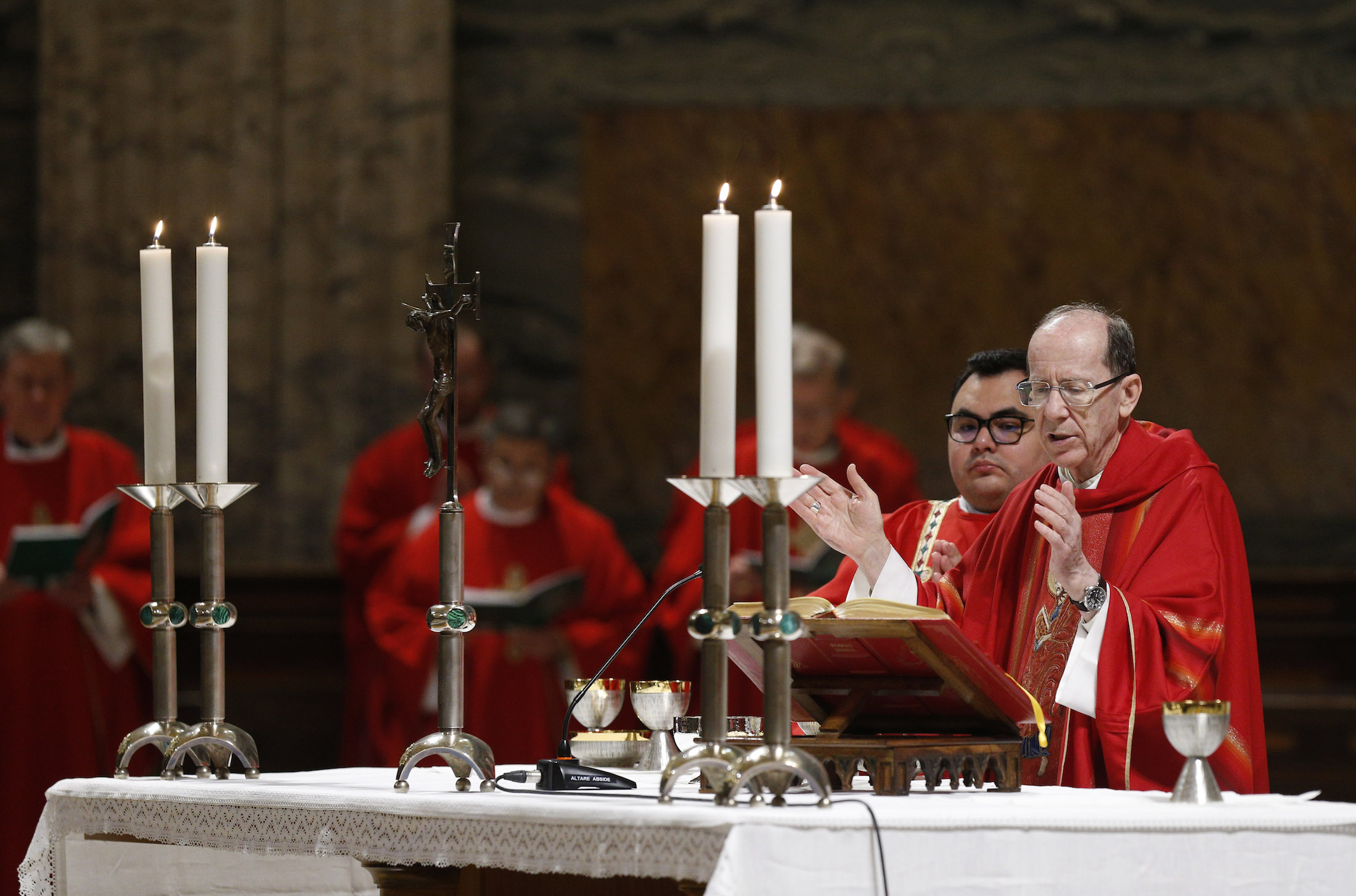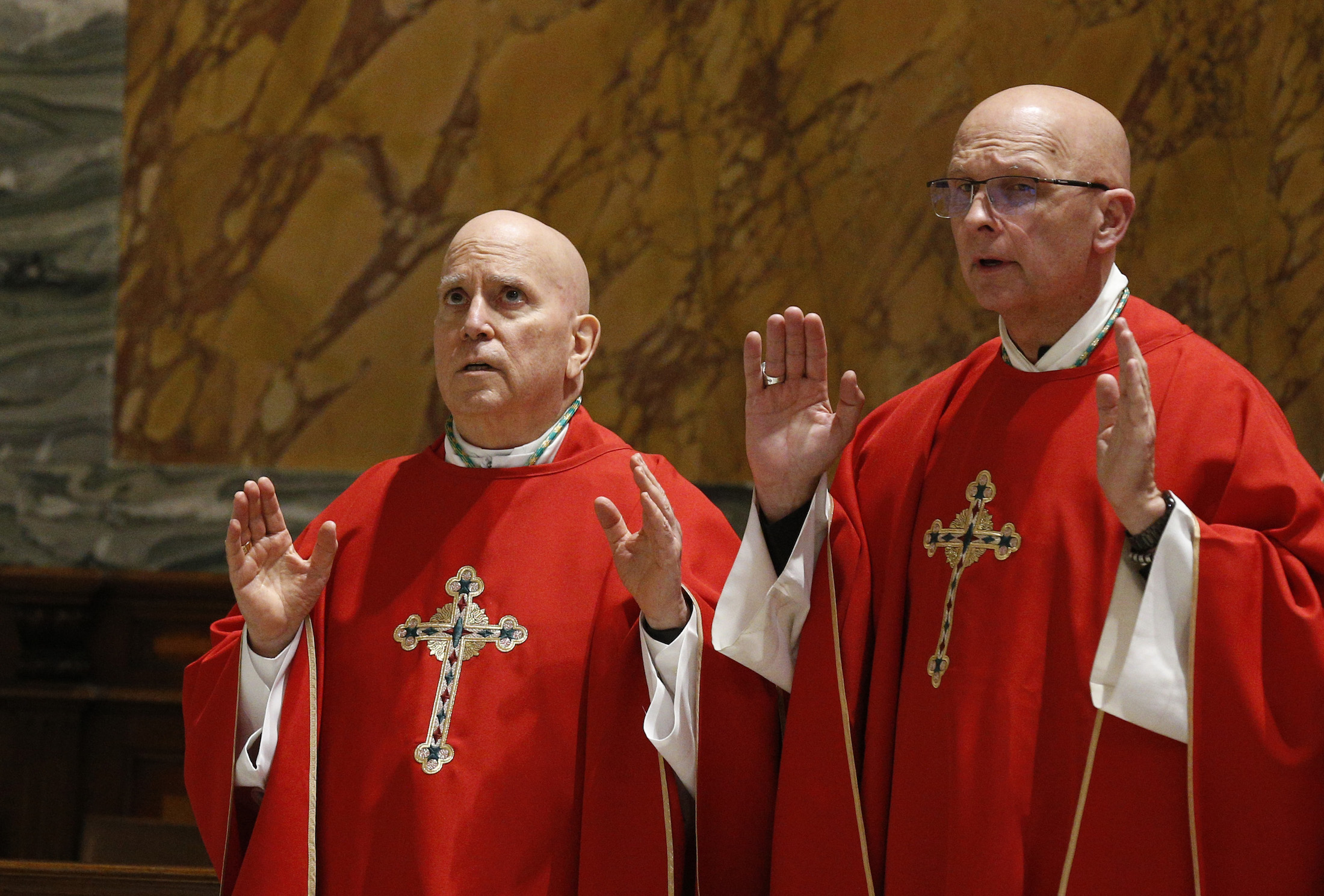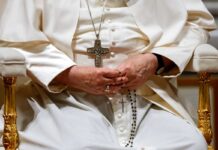ROME (CNS) — Visiting and praying at the tomb of St. Paul is a reminder of the ways Christ seeks people out and totally transforms their lives, said Bishop Thomas J. Olmsted of Phoenix.
“Here we can renew our love for Jesus Christ, our gratitude that he broke into our lives even maybe when we weren’t hoping for or expecting it, and turn things around,” just like he did for St. Paul, the bishop said Feb. 12 at Rome’s Basilica of St. Paul Outside the Walls.
Bishop Olmsted was the principal celebrant and homilist as the bishops of Arizona, Colorado, New Mexico, Utah and Wyoming celebrated Mass at the basilica as part of their “ad limina” visits to report on the status of their dioceses. The pews were packed with many faithful from their home dioceses who had also traveled to Rome on pilgrimage.
The bishop reminded everyone that God is always seeking out his children, every day and everywhere, trying to draw them near, even calling them by name, like he did with Abraham, Moses and Martha.
“Listen to see if he’s calling your name. He loves you,” he said.
“The call of Christ to conversion continues to resound with intensity because of his love and mercy for every human being,” he said. “Why? Because we’re pilgrims,” and pilgrims can “wander off the path very easily.”
“We’re always in need of conversion” and purification, time and time again, he said.
Often, conversion begins with a person searching for the truth, Bishop Olmsted said. But Saul of Tarsus was not seeking the truth; he imagined he already knew the truth and hated Jesus and his followers because he thought they were leading people away from God’s law.
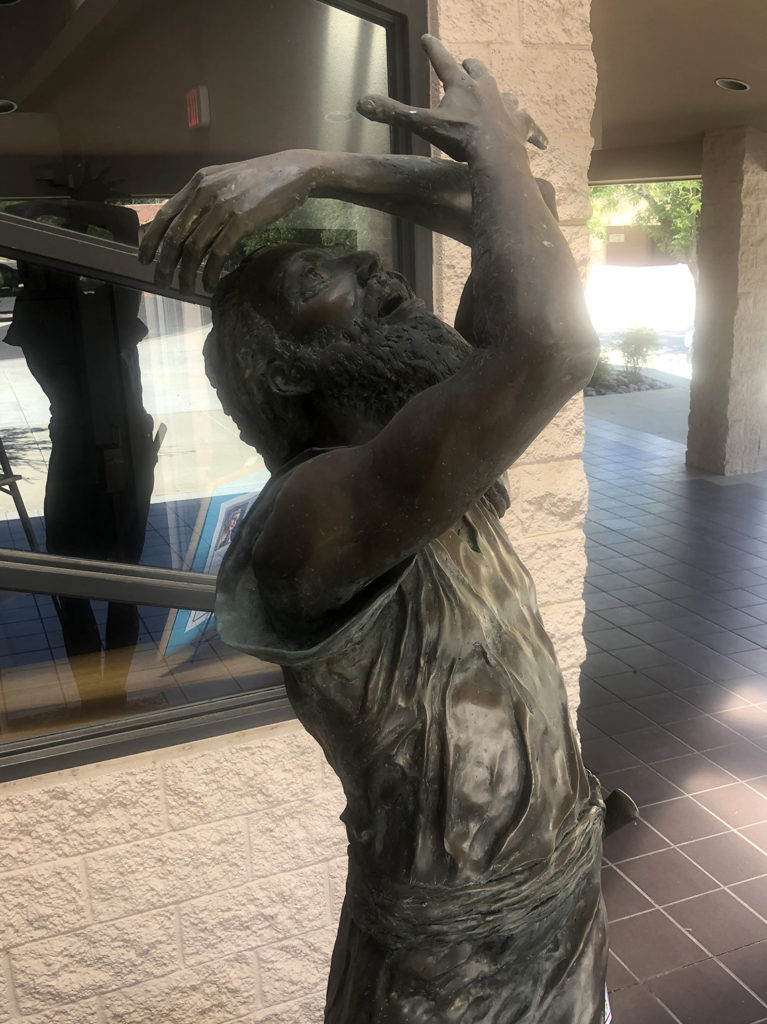
“Saul’s zeal for the law blinded him to the reality, the much greater reality of what God’s mercy was doing,” the bishop said.
Ready to seek out and arrest more Christians, Saul “was charging up to Damascus with full confidence” until Christ stopped him “in his tracks, blinded him by this brilliant light, which is of course the truth.”
In blinding Saul, God made him aware that he had been “blind in soul and heart,” and only then did Saul really begin to search for the truth, the bishop said.
Many people today are not seeking the truth or “not searching in earnest until our house of cards falls apart or our hard work seems to come to nothing,” Bishop Olmsted said.
“St. Paul’s conversion reminds us to expect great things from God’s mercy precisely when our life seems to be in tatters and we’re lost and we’re lonely, or we’re running on empty or we are discouraged by what we see happening in the church or in our family or in society. That’s especially when Jesus is drawing near to us, because he’s a God of mercy.”
When Saul encounters the living Jesus, he said, “that’s what turns Saul’s life around and, from that day on, that’s all that mattered.”
St. John Chrysostom wrote that the most important thing to Paul was knowing he was loved by Christ, he said.
“To be separated from that love was, in Paul’s eyes, the greatest and most extraordinary of torments,” and in fact, “to be separated from Jesus is hell. Heaven is the exact opposite of that,” he said.
“What’s most important in your life?” he asked, adding a suggestion that people pray God’s love becomes “the most important thing in your life.”
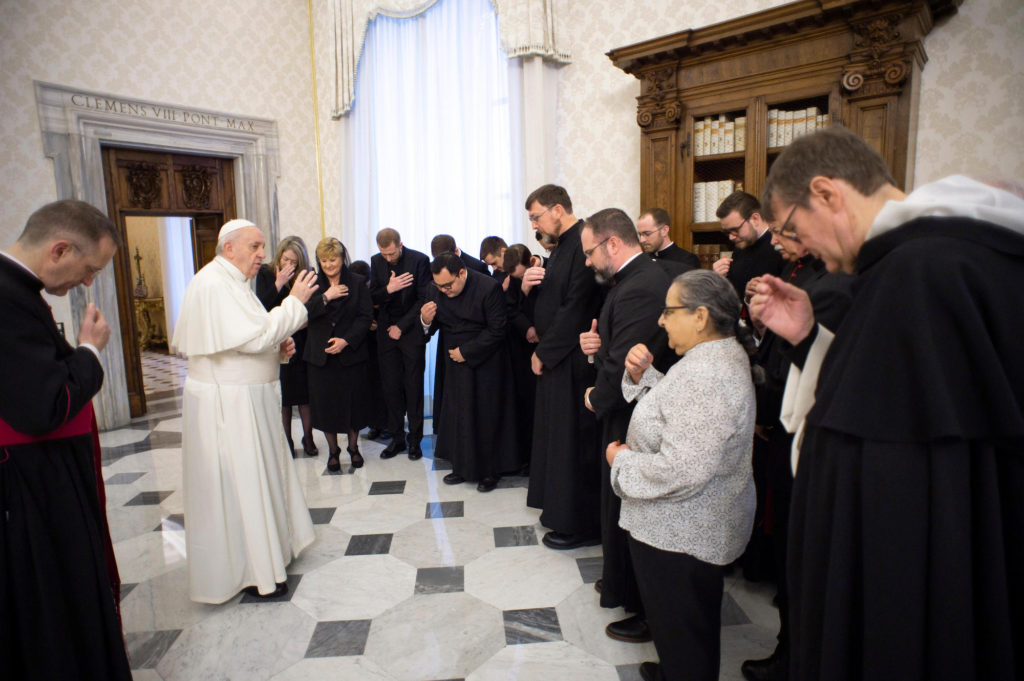
Nothing transforms one’s life as much as a personal encounter with Jesus, Bishop Olmsted said. “So, if you feel your life needs a renewal, a reform, encounter the Lord Jesus Christ. And no one desires that more than Jesus himself.”
— By Carol Glatz, Catholic News Service.



